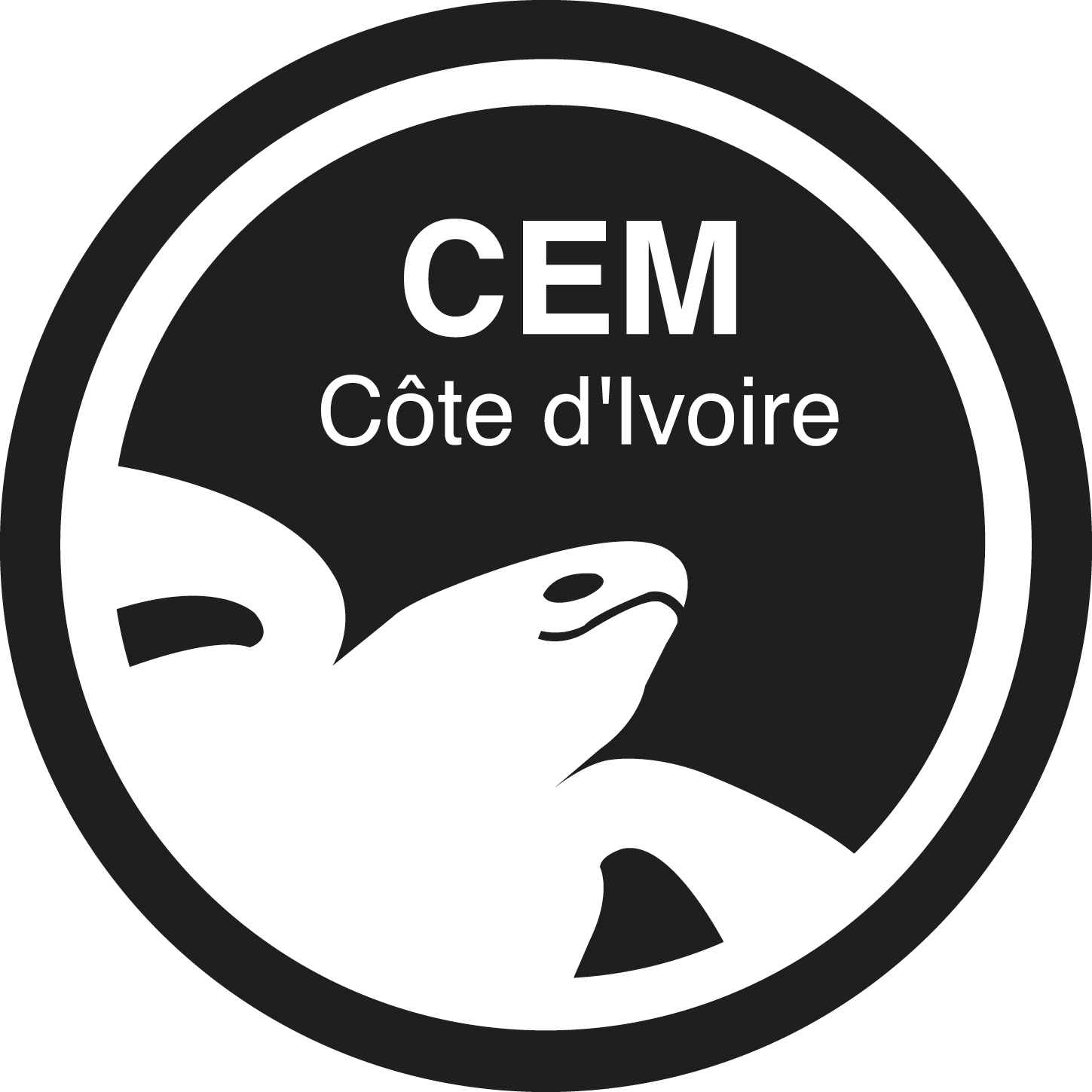CEM obtained funding from Billion Baby Turtles to carry out conservation activities in the villages east of the city of Grand Bereby (Nero Mer, Boupé, Ouro, Takoro, Menolé and Taki). A million thanks Billion Baby Turtles for your support !!
CEM provides the Grand Bereby Maritime Police with a fully equipped boat to fight illegal fishing, especially trawlers. Thanks to Rainforest Trust for their support!
The government of Côte d'Ivoire adopted the decree for the creation of the Grand Béréby Marine Protected Area (272 375 ha) on July 6, 2 022. The ivoirien NGO’s CEM and AAD (with its financial partners) are the only organizations to have worked on the ground with the populations and authorities of Grand Béréby to achieve this result, and this since 2010.
This year 2 022, the NGO CEM will start two new projects in Grand Bereby: "Conservation of three critically endangered guitarfish species in the Marine Protected Area of Grand-Bereby (southwestern Ivory Coast)" and "ecotourism development of the false gharial crocodile". The projects about the sea turtles conservation, support for the creation and management of the Grand Bereby MPA and the creation of the Community Natural Reserve of the mouth of the Dodo River are still underway.
CEM organized on March 10 and 11, 2022 the first consultation workshop on the management and zoning plan of the Grand Bereby Marine Protected Area with the participation of all central, regional and local authorities, fishermen, communities, etc.
In partnership with AAD and USCOFEPCI (Union des Coopératives des Femmes des Métiers de la Pêche - Union of Cooperatives of Women of the Fishing Trades), CEM has begun activities of a project to strengthen the capacity of women's fish traders' cooperatives in Bas Sassandra. The project aims to improve their working conditions and livelihoods, including the construction of a fishing center that will include a solar-powered cold room and a solar-powered ice-making machine for the Grand-Béréby landing site;
CEM benefited for two months from the work of two interns, Tom Jamonneau and Robin Zarour, students in conservation biology, who carried out preliminary work on the presence and abundance of guitar ray and sawfish species in the Grand Bereby Marine Protected Area;
This year also, the hotel Le Khatoum of Grand Béreby supports the marine turtles conservation actions, the ecoguards and the riparian villages with a generous contribution from the turtle watching activities with tourists.
Nader Fahkry's film on the work of CEM:
CEM donates two motorized tricycles and five shredders to five villages in Grand Bereby concerned by the creation of the MPA in order to promote the cultivation, marketing and processing of food products
21 décembre 2020
Cérémonie d'annonce à San-Pédro
Announcement ceremony in San-Pédro
Ivory Coast has announced the creation of its first Marine Protected Area (MPA).
The MPA will cover 2,723 km² of pristine ocean off the coast of Grand-Béréby, protecting marine biodiversity including threatened shark and turtle species.
The announcement is the culmination of years of work by the Ivorian government, the Abidjan Convention, Swedish Government and local non-governmental organisation Conservation des Espèces Marines (CEM), supported by the University of Exeter and the Wildlife Conservation Society.
This work was done alongside communities in Grand-Béréby to strengthen protection of marine biodiversity and fisheries resources, and to enhance local livelihoods.
The Minister for the Environment and Sustainable Development, Professor Joseph Seka Seka said: "Today I announce our decision to create Cote d’Ivoire’s first Marine Protected Area in Grand-Béréby, a 'partially protected' area that will include an integrally protected zone closed to all activities, and an eco-development zone that will support sustainable fishing practices and ecotourism activities."
In September, the Ivorian government stated its intention to create five MPAs – and today's announcement confirms the first of these.
A legal process will now take place before the MPA rules come into effect.
The MPA location includes important sea-bed habitats and reef ecosystems, as well as globally significant nesting and foraging grounds for the leatherback, green and olive ridley turtles.
It will also protect more than 20 species of sharks and rays, including hammerheads, manta rays and guitarfish – a group of rays now considered the world's most threatened marine fish.
Alexandre Dah, President of CEM, said: "The government of Cote d’Ivoire should be congratulated for translating our science into policy, with this new MPA both safeguarding globally important populations of threatened marine species, as well as supporting the livelihoods of local communities who depend on fisheries resources."
The creation of the MPA relied on detailed scientific data collected by a team including the University of Exeter, who were supported by funding from the UK government's Darwin Initiative and the Rainforest Trust.
The research included participatory work with local communities to collect data on the biodiversity and health of the waters, including underwater surveys of marine habitats and previously undocumented reefs, and satellite tagging of sea turtles.
"This MPA is in a really unique area of marine biodiversity, whose reefs provide a natural refuge that will now be complemented by legal protection," said Dr Kristian Metcalfe, of the Centre for Ecology and Conservation on Exeter's Penryn Campus in Cornwall.
"The political will for protecting marine biodiversity and supporting sustainable resource use has been exemplary, and so we are delighted that our collaborative efforts have been able to underpin such a massive step in marine conservation.
"Levels of marine protection in West Africa are generally low, so the Ivorian government's creation of a Marine Protected Area is a big statement that will hopefully act as a regional exemplar."








